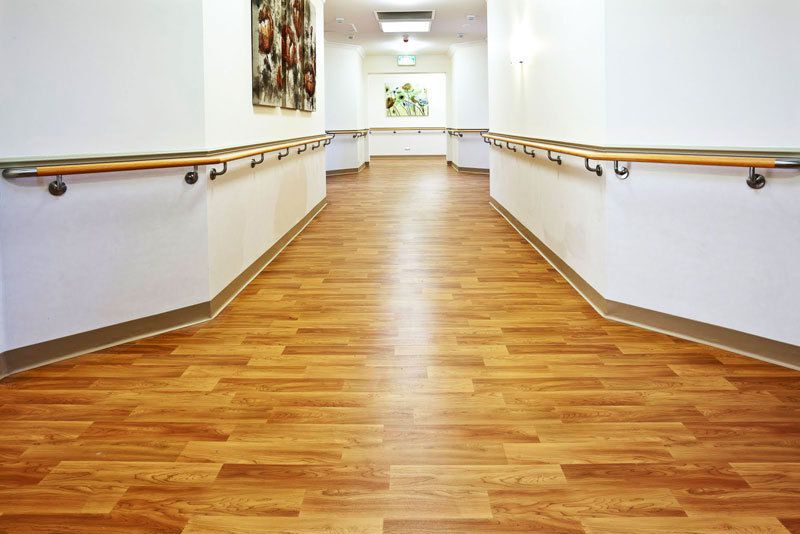Frequently used types of commercial flooring
Commercial floorings stand out with a couple of features: durability, easy maintenance, low overall cost and not in a last place – to be appealing to the eyes. Flooring is the little detail that says how professional you see your work place, warehouse or an office. Choose the color and the texture that will suit the most your needs and image.
Artificial stones. In these section are included concrete, ceramic tiles (both glazed and unglazed) and terrazzo. These floors have easy maintenance. They are not cheap but in long term plan they pay off with their durability. Tiles have great variety of colors and patterns. They are often used for food service areas. Concrete can be stained and you can find it in warehouses, supermarkets and other commercial heavy-duty areas.
Hardwood floors. These are not preferable for commercial use due to their specific maintenance conditions and their cost. You can see hardwood floors mostly in home offices and places where the company is not bigger than ten people.
Vinyl. Its varieties are the most preferable commercial flooring London – linoleum and vinyl tiles. They are durable, considerably cheap, hard to stain and easy to clean. That's why they are mostly used in small factories, offices, kindergartens and schools.
Laminate. It resembles the beauty of the hardwood and have higher durability. Laminate is easy to maintain, cheaper than wood and there are variety of brands and qualities. As you can guess, laminate is not suitable for factories and commercial buildings with a lot of pollution. If you insist on installing laminate, leave it for the offices.
Carpet. Flooring experts London say that carpet is a sign of luxury. It can easily get stained, it's hard for maintenance and pricey. Also on the downside: if your space is with a high humidity, the carpet can easily develop mold and get damaged.
When you choose floor for a commercial building turn to a specialist on the floors, not only to the architect and the designer. It's important to list your needs and expectations and to invest your money wisely. Your floor will be one of the first things that will welcome your customers, what you want it to say for you?

